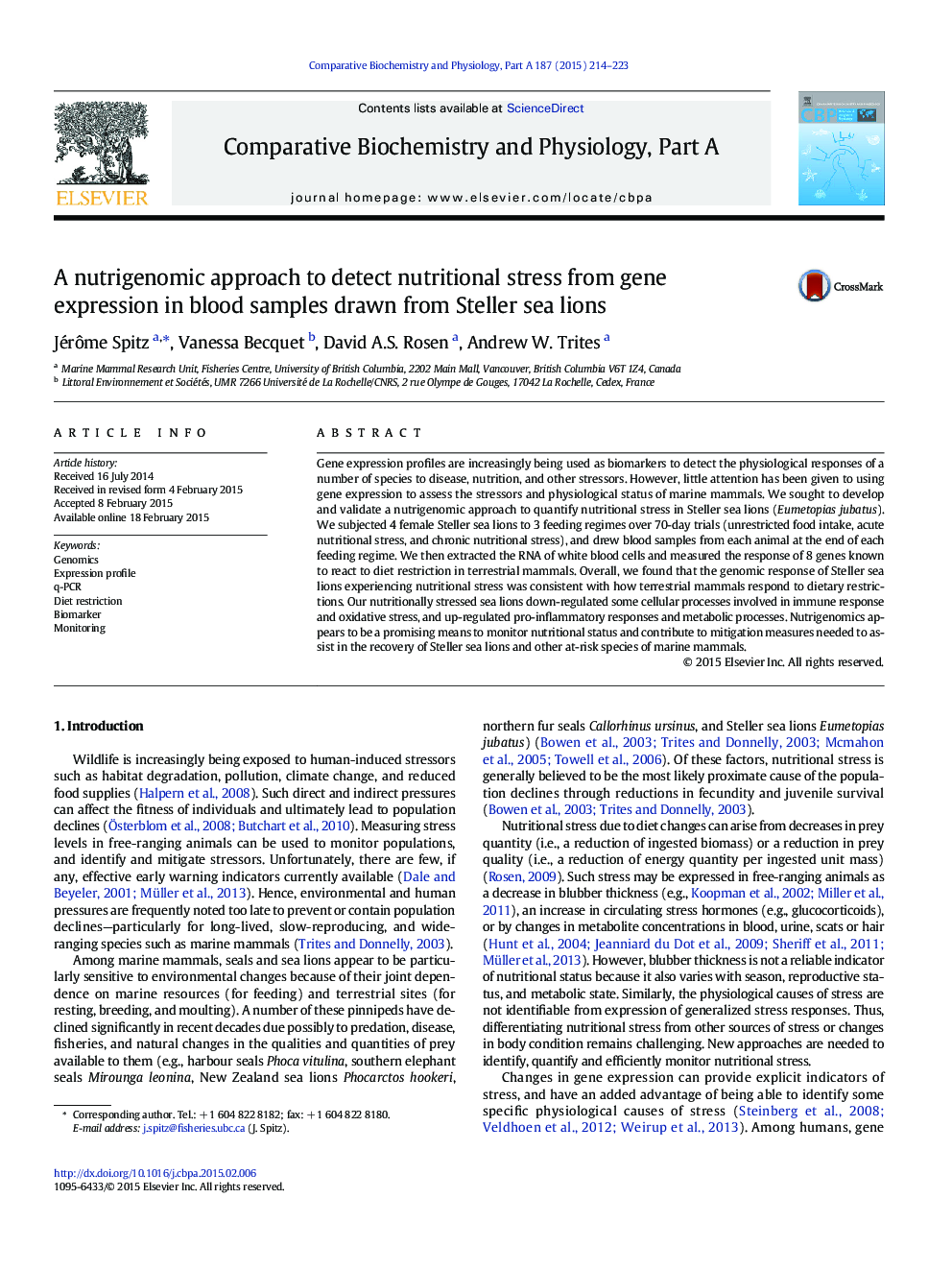| Article ID | Journal | Published Year | Pages | File Type |
|---|---|---|---|---|
| 1972036 | Comparative Biochemistry and Physiology Part A: Molecular & Integrative Physiology | 2015 | 10 Pages |
Gene expression profiles are increasingly being used as biomarkers to detect the physiological responses of a number of species to disease, nutrition, and other stressors. However, little attention has been given to using gene expression to assess the stressors and physiological status of marine mammals. We sought to develop and validate a nutrigenomic approach to quantify nutritional stress in Steller sea lions (Eumetopias jubatus). We subjected 4 female Steller sea lions to 3 feeding regimes over 70-day trials (unrestricted food intake, acute nutritional stress, and chronic nutritional stress), and drew blood samples from each animal at the end of each feeding regime. We then extracted the RNA of white blood cells and measured the response of 8 genes known to react to diet restriction in terrestrial mammals. Overall, we found that the genomic response of Steller sea lions experiencing nutritional stress was consistent with how terrestrial mammals respond to dietary restrictions. Our nutritionally stressed sea lions down-regulated some cellular processes involved in immune response and oxidative stress, and up-regulated pro-inflammatory responses and metabolic processes. Nutrigenomics appears to be a promising means to monitor nutritional status and contribute to mitigation measures needed to assist in the recovery of Steller sea lions and other at-risk species of marine mammals.
